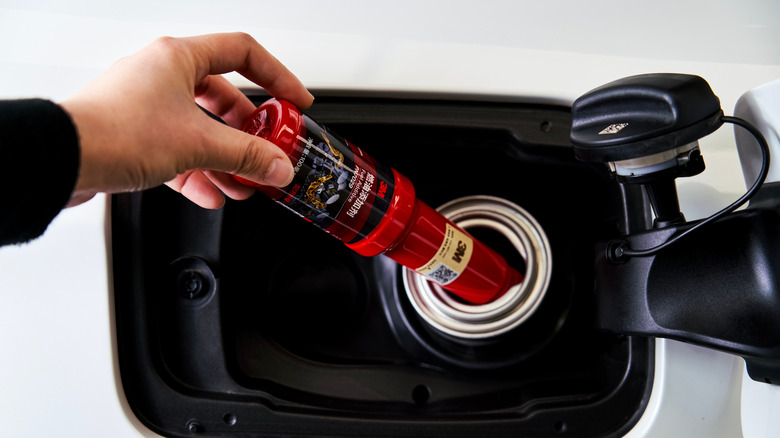
Octane ratings refer to the stability of fuel, and dictate at which pressures the fuel will spontaneously combust. Engine knocking can happen when the octane rating is too low, resulting in pinging noises, hesitation, and even engine damage in the long run. This is where octane boosters can help, as these liquid additives, when poured into your fuel tank, raise the octane level of gas so it can burn more smoothly, and also at the right time.
There are numerous advantages to using octane boosters, and arguably the biggest of these is improved performance. High-performance engines thrive on high-octane fuel, and usually require it, too. When the correct fuel rating is used, be that via premium gas or octane boosters, everything from air induction to ignition timing falls into place. The difference is real too, you should be able to notice restored horsepower, smoother acceleration, and more responsive throttle input. In addition to restoring lost performance, octane boosters also help to prevent that aforementioned knock and ping, protecting the engine and extending its life.
The third benefit of octane boosters is that they clean your engine's internals too. Over time, combustion chambers collect carbon deposits, and that can sap power and efficiency away from the engine. Some octane boosters tackle this by cleaning out those deposits and flushing connected fuel lines. That means fewer hiccups, better combustion, and an engine that doesn't feel sluggish. There's a fourth and final benefit too — ease of use. For most products, all you need to do is pour the recommended amount into the tank during a fill-up, and the booster does the rest. Nice and simple, however, there are downsides to using octane boosters too.
 Jenson/Shutterstock
Jenson/Shutterstock
Now for the flip side: octane boosters aren't perfect. The biggest drawback of using them is that, while affordable for most, they are an additional cost. Running a performance car is rarely cheap, so any extra costs are always a negative, and if you're adding one of these to every tank, the price stacks fast. For drivers who fuel up regularly, the expense could quickly overshadow the modest benefits.
Another issue is reliability, as not every octane booster is going to be right for your car, and choosing the wrong one can mean little to no improvement. In the words of Dr. Carroll from the Department of Chemistry at Indiana University Bloomington, octane boosters are like vitamins. He says "they are at their best and most necessary when they are correcting a deficiency, but despite what some people think, massive doses of vitamins have not been shown to have a reliably massive positive effect. Octane boosters are similar." So, pick the wrong octane booster, and it's like taking a vitamin you don't need — it's just an expense with no real benefit.
Finally, your own expectations of the product could be the biggest drawback of all. Octane boosters are great for specific applications, like helping an older car designed for leaded gas run smoothly, or bridging the gap when your local pump doesn't sell the octane your car needs. However, pouring a booster into your tank won't fix a misfiring old truck, or magically send your horsepower soaring north. Also, if your car is already running sweetly on the recommended fuel, you may not notice a difference at all. In other words, the product shines in the right circumstances, but isn't a one-size-fits-all solution.














